Passing
[Note: The Milton Babbit section of this article was first published as An Eulogy to Milton Babbitt on Blogcritics.]
Since December 2010, Juilliard has seen the death of three notable figures in classical music: Milton Babbit, composer and teacher at both Princeton and Juilliard; Jacob Lateiner, pianist known for his interpretations of Beethoven and 20th century music; and Herbert Stessin, a pianist and longtime Juilliard faculty member.
They were all remarkable for many reasons.
Milton Babbitt, who passed on January 29 at the age of 94, is a name notable in the classical music world. His music is not performed that frequently–even within classical circles, Babbit was somewhat renowned for music that was extremely difficult to listen to. In fact, Alex Ross, cultural commentator, music critic and author of The Rest is Noise: Listening to the 20th Century, spoke of Milton Babbitt as an “emblematic Cold War composer” producing music “so Byzantine in construction that one practically needed a security clearance to understand it”. Despite these and other complaints that his music was deliberately inaccessible by mainstream audiences, the innovations he brought to composition and classical music remains.
Though the public suspected, perhaps as a reaction to something they could not understand, that he actually wanted to alienate his listeners, the fact remains that he brought a different way of thinking into the musical spheres. Besides being well versed in jazz and American pop music and using these influences in his compositions, Babbit believed that classical music, especially contemporary, shouldn’t always just be easy, obvious listening. Instead, he believed that the listener should be willing to take the time to listen to this kind of music. This type of music should be worked at to be understood, somewhat paralleling the views of intellectuals and writers like T.S. Eliot and Ezra Pound. This kind of music was for trained musicians, not for the mainstream.
According to this tribute published on Princeton University’s web page, Milton Babbit’s views were innovative indeed.
Serious modern music, he argued, was not for the average listener — it could be understood only by those with training, similar to learning how to appreciate works in mathematics, physics or philosophy.
Ultimately, to the musician who was willing to take the time to decipher this music, this would be a rewarding listening experience.
Part of the development of this music stemmed from Babbitt’s own fascinations with math and music theory, leading to the development of a particular use of the 12-tone scale in music. This idea originated from Austrian composer Schoenberg, and Babbitt took it to the next level. The 12 notes of the scale, ordered in a particular way, formed the basis for the piece.
Among other things, Babbitt also embraced electronic music, which excited him with its possibilities. And even though his own music was probably the most inaccessible, he also embraced music like jazz, pop, Broadway, and more. To him, different kinds of music deserved to be heard, and was ultimately worthy of respect.
He also taught Stephen Sondheim, Broadway composer and lyricist of such hits as West Side Story, Gypsy, Sweeney Todd.
The Juilliard community is deeply saddened by the death of Jacob Lateiner. A member of the School’s piano department from 1966-2009, Jacob brought enormous intellect, artistry and dedication to all he addressed at Juilliard. His particular emphasis in his courses and performances on the music of Beethoven and his contemporaries enriched his many students in innumerable ways. His presence and quick wit will be missed by us all. Bruce Kovner, Chairman Joseph W. Polisi, President
Jacob Lateiner, pianist and much-beloved professor at the Juilliard school, passed away on December 14, 2010, at the age of 82. He loved Beethoven, but he also had a great interest and saw a lot of value in the music of the present, and contributed to a lot of promotion of this music.
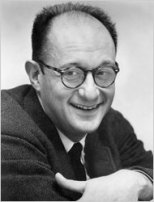 Stephen Smoliar, classical music writer for the San Francisco Examiner, wrote that it seemed remarkable that a pianist would be as equally fascinated with Brahms as with contemporary music. He notes that in the past, there was suspicion with such performers, as “everyone” was “obsessed” with cutting all ties with the past through contemporary music. Lateiner did not forsake the ties with the past, noting that there was much one could learn from Beethoven, Brahms, and Bach. At the same time, one could embrace the music of the present. He did not want to place any time period over another, but instead saw value in both. This was his legacy.
Stephen Smoliar, classical music writer for the San Francisco Examiner, wrote that it seemed remarkable that a pianist would be as equally fascinated with Brahms as with contemporary music. He notes that in the past, there was suspicion with such performers, as “everyone” was “obsessed” with cutting all ties with the past through contemporary music. Lateiner did not forsake the ties with the past, noting that there was much one could learn from Beethoven, Brahms, and Bach. At the same time, one could embrace the music of the present. He did not want to place any time period over another, but instead saw value in both. This was his legacy.
Smoliar goes on to say:
(It was all very well and good to worship at an altar devoted to Arnold Schoenberg; but giving a serious reading to his “Brahms the Progressive” essay was not part of the equation!) As was evident from last night’s recital at the Conservatory, those days [referring to the rejection of the works of the past]are long gone; and I, for one, do not miss them at all. It is clear from the repertoire that he cultivated that Lateiner had a hand in their passing, and that may make for a more significant legacy than any specific performance or recording session in which he participated.
Herbert Stessin, pianist and longtime faculty at Juilliard, passed away on January 22 at the age of 88.
As a dedicated and insightful teacher, Herbert guided generations of pianist in preparation for a career as a soloist, chamber musician, teacher, and administrator. His quick wit and generous personality were a source of goodwill for all who knew him. His legacy will continue at Julliard far into the future.
As is apparent, Stessin had an influence on the development of many of his students, including Jeremy Denk, concert pianist and author of Think Denk, a notable blog, as noted by Denk in an interview he had with NPR.
He is a hilarious, wonderful man with a tremendous knowledge of piano-playing tricks and secrets, and an infallible nose for when phrases go awry, or when a sound is not right.
Orli Shaham, who studied with Stessin at the Juilliard Pre-College, wrote a beautiful tribute to his former teacher and mentor. According to him, he was a demanding teacher who also helped work his students through any other problems they had. He was a supportive colleague, with a wonderful sense of humor.
One thing stuck out at me:
He demanded honesty in your playing: no faking notes, of course, but even more importantly no faking the emotions. The phrases had to speak genuinely.
The music world has lost three legends. Their presence will be sorely missed.
Perhaps they are just passing the torch… as evidenced by what they have left behind.
To embrace innovation, learn from the past as well as the present, and to cultivate honesty in music-making, among other things… is this part of what we as musicians are called to do?
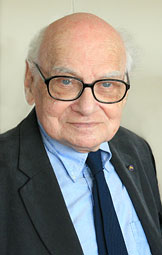

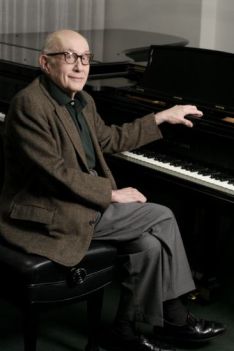
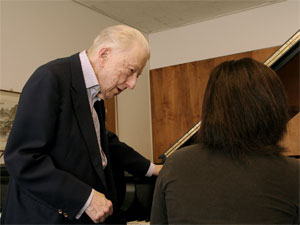
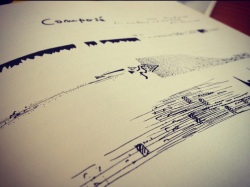
They are indeed amazing, and what they have done are inspiring. Hope the next generations of musician may continue their works. Thanks for sharing!